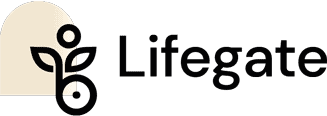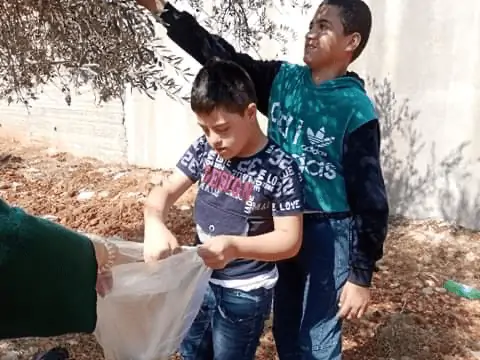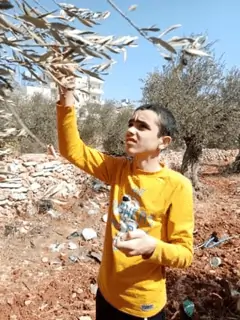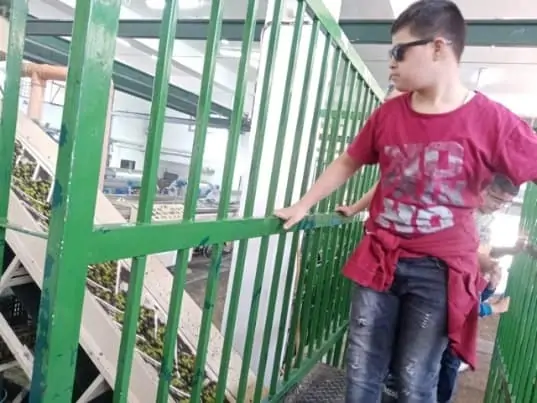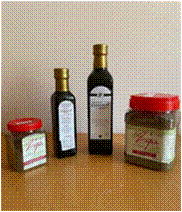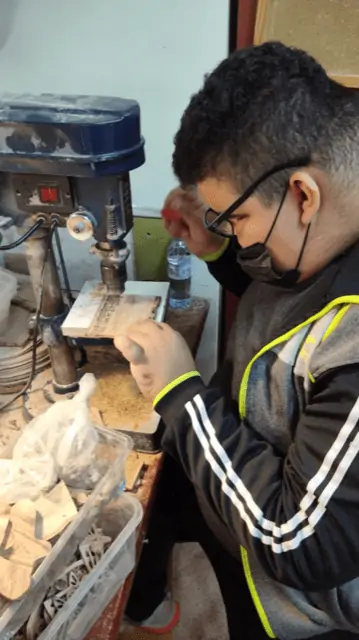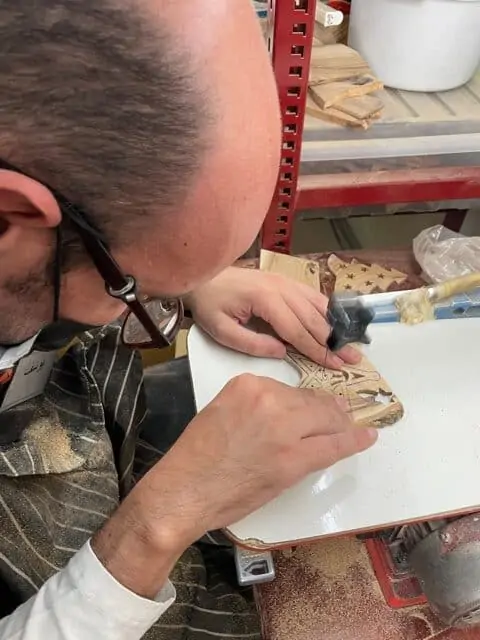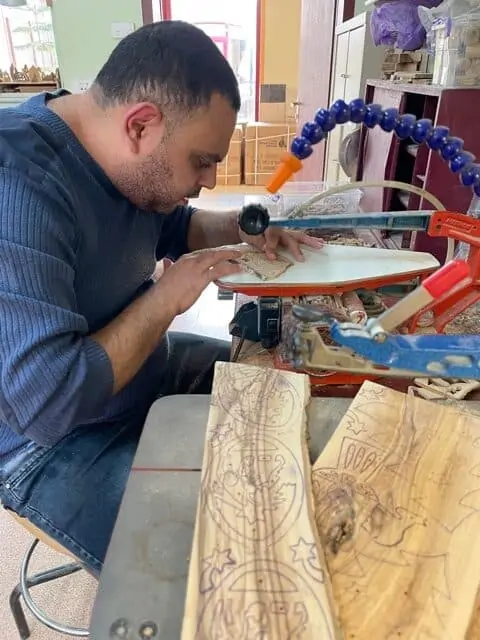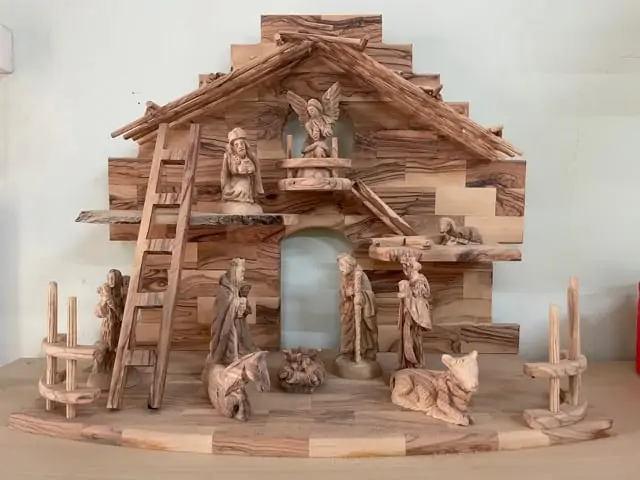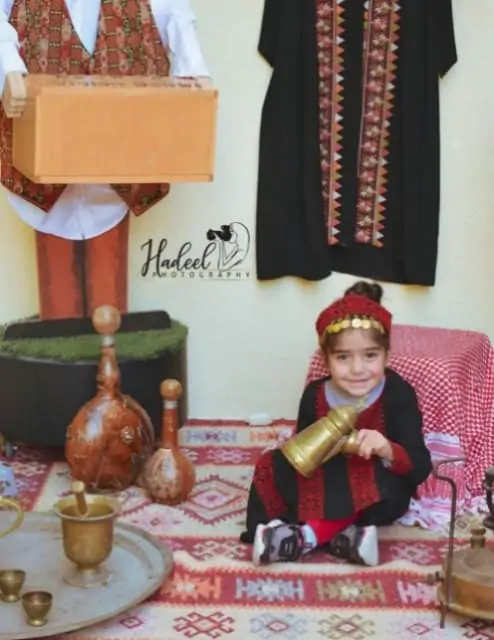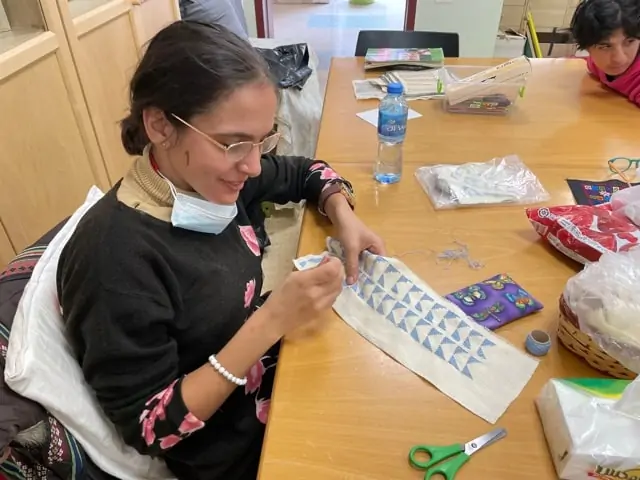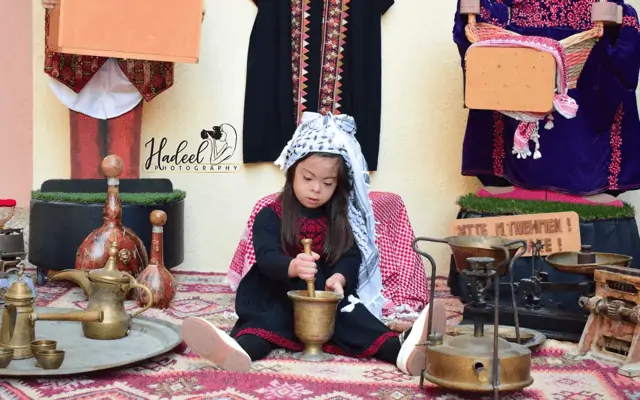A golden October in every sense of the word. It is still nice and warm during the day and Jerusalem unfolds its beautiful, warm (golden) colours, especially at sunset in autumn. The nights cool down and the first jumpers and jackets are brought out. Flocks of migratory birds in the sky, especially in the Syrian-African Rift Valley, that runs through our country from Eilat in the south to the Hula Valley in the north, announce that winter will soon be upon us. . It is the time of energy saving, where there is no need for cooling in the Lifegate building, but also no need for heating yet, and our electricity bill looks much friendlier. People are on their way to harvest the olives and then press a tasty oil. Our oil delivery to Germany is also in preparation and once again we were able to increase the quantities and also work on refinements of our oil. . A month with many activities in our house and wonderful surprises. The first visitors announced themselves after almost two years – we are curious if they will really arrive. According to official news, the country should open again in November. Many people who somehow earned their living with and around tourism are eagerly waiting. We are one of them and look forward to welcoming groups of visitors, volunteers and guests in Lifegate Garden. We are happy to report on some autumnal highlights in October.
´Mobility is quality of life”
The Lifegate Aids Department with our American ‘wheelchair angel’ Richard Stephan is currently working with the help of two other organisations to adapt and distribute wheelchairs and aids to various places in the country. A container of wheelchairs is already on its way from the USA and Richard has already provided the first children with our old stock of aids. Each aid is individually adapted and tailored to the child’s disability by Richard with great love and care. Our experts from the Lifegate locksmith’s shop, the carpenter’s shop and the shoe and leather repair shop help diligently.


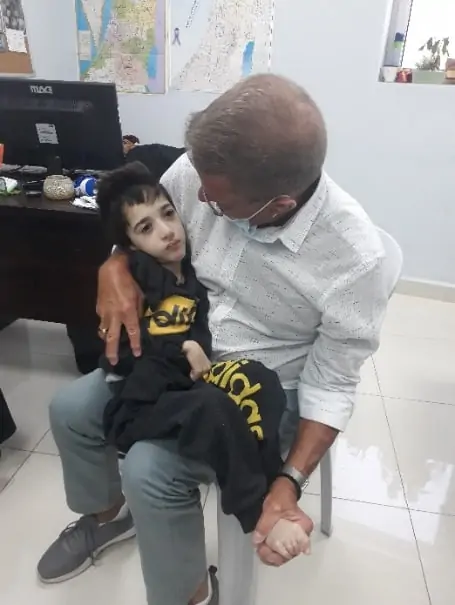
‘New service’
The Lifegate Aids Department is very well known in the Bethlehem area and many people turn to us to get aids and also to repair them. However, if we look in other areas of the West Bank, even in the larger cities, people there neither find the aids nor the possibilities to get for example defective wheelchairs repaired. Often, people’s mobility falls by the wayside until perhaps a family member sets out to seek help.
We are therefore very pleased that, with the help of the Society for International Cooperation, we are able to set up an outpatient aid and repair service for people throughout the Palestinian territory, in addition to the orthopaedic workshop. A service vehicle equipped for this purpose will travel to various places in the country, where organisations working with us, will contact people in need of aids in advance and call them in. Our team can take ‘measurements’ on site and bring an adapted wheelchair with them on their next visit, for example. Aids are to be repaired on site and replacement chairs issued until the original chair can be made usable again in Lifegate. Hospital beds, walking aids and many other aids are also made available to people in need through a lending system. A new employee and two trainees are working on this project. The lives of many people who previously had no access to aids or whose wheelchairs no longer work because of a defect, are to receive important help. At the same time, we want to raise the standard in the country with our high-quality assistive devices. Our efforts may also lead to the establishment of permanent aid centres in central locations with the help of local people and organisations.
‘Neighbourhood aid’
In line with all these activities, the Israeli aid organisation ‘Yad Sarah’, with whom we have been on friendly terms for years, donated used aids and wheelchairs in good condition. This help will enable many children and young people to have a better quality of life.
‘Small steps into a new life’
As announced in September, our new orthopaedic technician Jonas Weinholz has arrived in good shape and has put the workshop set up by his predecessor Simon Rössler into operation. Jonas started making the first ‘orthopaedic splints’ for children at Lifegate With this fitting, feet can be corrected, children can come to stand and maybe even learn to walk. What beautiful perspectives, we are very grateful for these possibilities!
‘News from the group of our children with severe and multiple disabilities’
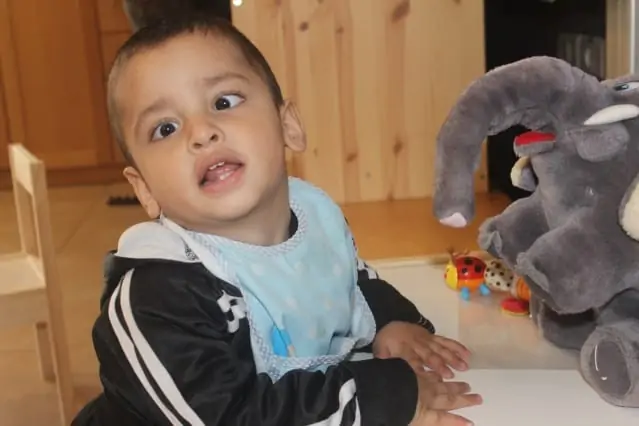
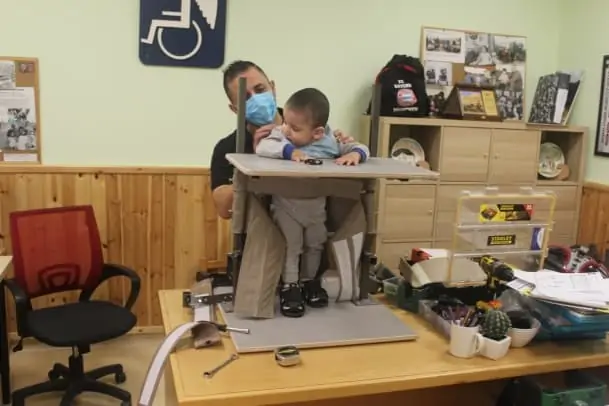
Loay is two years old. He is one of triplets. His siblings are healthy and developing according to their age. We met Loay in June this year in a first contact meeting. He came with his parents. His mother was very frustrated as she believed Loay could not do anything and also had little developmental potential. . Loay showed a one-sided paralysis of his body shortly after birth. Already in the conversation, the possibilities of this boy were really clear. So, we offered the family a place in the group for the children who need more care, in order to start support work with the boy as early as possible. Loay has been fully integrated in the group since September. Since then, he has developed very well. He is very sociable. He laughs a lot. He now plays independently on the mattress, crawls, starts to say some words, stands and walks with help. We have high hopes that Loay may be able to join Lifegate’s nursery school next September.
„Team Work“
Amelie, Lilith and Annemarie, our volunteers, are settling in well at school, kindergarten and in the class of children with severe disabilities. There was a first meeting with an exchange of all volunteers of the sending organisation DVHL in the country, which our ‘trio’ combined with a trip to the Mediterranean Sea. These days, the Arabic lessons at Lifegate started. . During their voluntary year, the ladies can change their place of work in the institution every four months in order to get a good overall picture of our work.
Our pedagogical advisor and supervisor Angela Köster has completed her assessment phase at the facility and will now set her first priorities in accompanying the head of the special school and individual teachers.
The newly hired Palestinian teachers and therapists are also finding their place in the team and are very motivated to work with the children and young people.
We are preparing an open day for the next month, where we want to invite families of our children but also people from our village to get to know Lifegate better. The guests should be encouraged to reconsider their fears and prejudices towards people with disabilities and to gain new experiences. A colourful and cheerful programme should appeal to many people and lead to more togetherness.
‘Off the post’
19 tightly packed boxes left for Germany in October and we hope that the beautiful Lifegate gift items made of ceramics and olive wood will make it under many Christmas trees. This year we were able to make most of the previously purchased products ourselves and thus bring our production to a higher level. We thank our new trainer and the young people with different disabilities who are learning diligently. German friends reported to our delight about Christmas markets and bazaars that may take place again this year, where our products will then be offered.
‘The eye eats with us’
Every evening around 6.00 pm, ringing signals from my phone announce the picture gallery of the day from the Lifegate kitchen. Mario, our chef, not only knows his way around a wooden spoon, but also likes to take photos. So, I can’t avoid our kitchen in the October report either and include a few pictures of the „magicians” from our kitchen training programme. Enjoy your meal!
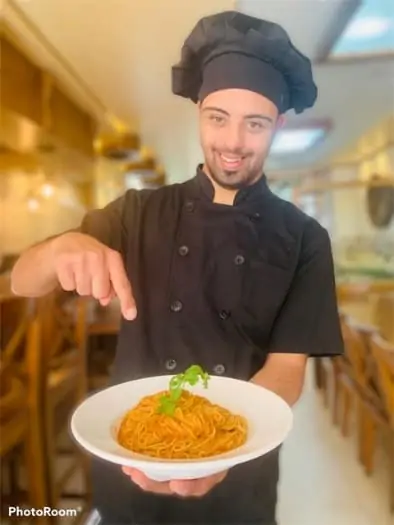
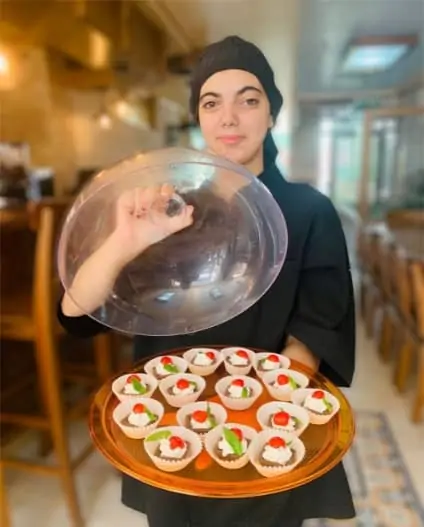
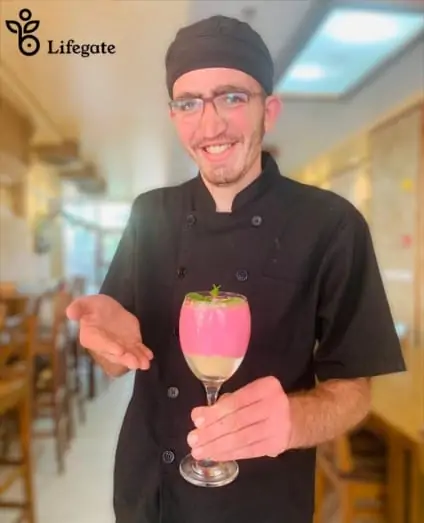
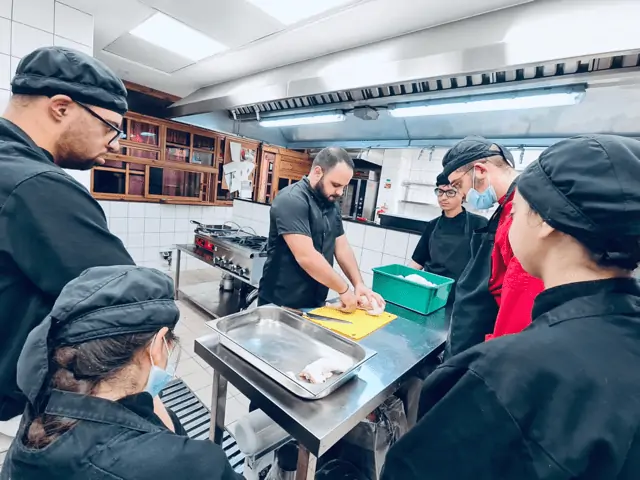
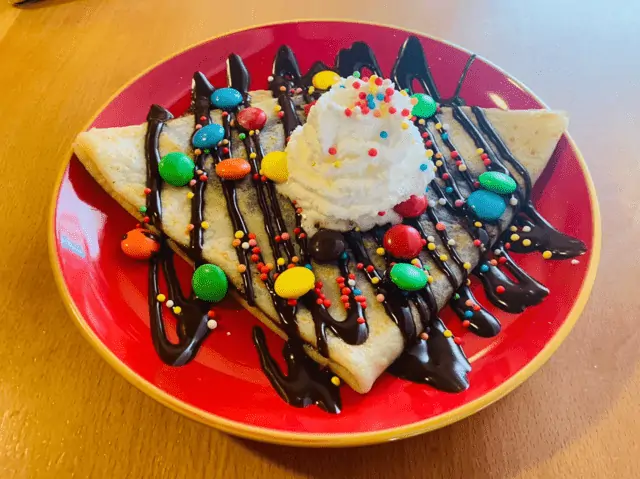
‘Blame it on the chips’
By now, word has spread about the drastic chip shortage in the car industry and even our vehicle donated by friends for transport on the Palestinian side is somewhere in the world ready for delivery and waiting for the computer chips, so it can finally be shipped. Fortunately, the car was assembled for the hospital appointments in Israel and on the ground before the chip crisis and is serving us well. That now also the new Lifegate lift is still not running because of the lack of the right computer chip is an ironic coincidence. Here, too, a remedy has been promised.
So, we are thankful that at least the crisps are still on our supermarket shelves and so we can better cope (nibble) the otherwise so sad „chip news” from our reality.
‘We have experienced a great miracle’
While at the beginning of October we were still anxious and doubting whether and how we would be able to withstand the pressure from the seller (to sell the land immediately) of the neighbouring property without losing the land, several wonderful surprises happened at once. Good friends of our work offered us interest-free loans with very convenient repayment terms. A supporter organisation of our work converted the loan into a donation and also promised us support for the construction of the planned adventure world for children with disabilities on this piece of land. Other friends promised to make a strong commitment to the purchase of further square metres in the near future. This was the signal for us to purchase the land now and to pay back the borrowed sum slowly or quickly with the help of many friends. We are once again ashamed of our small faith and heartily grateful for the many people who trust us, who have helped and will continue to help. May you all receive back in many ways the blessings that were given to us! Thank you also on behalf of the children and young people who will benefit from this land and our entire team in Beit Jala and in Germany!
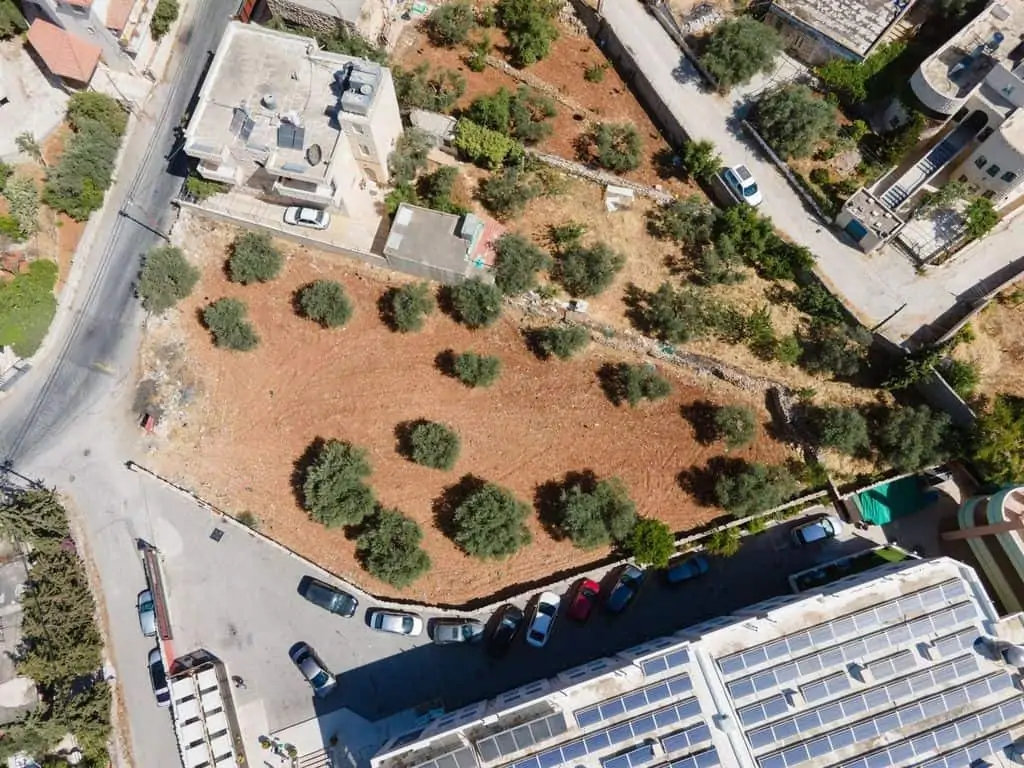
‘Traditions are important’ – around the olive harvest
The annual olive harvest, which takes place in October and November, connects generations of people. Young and old can be found under the trees picking the olives by hand as they have done for hundreds of years, or spreading tarpaulins under the trees and beating the olives from the trees with sticks and then picking them up. The few modern tools that exist for this harvesting (rotors attached to sticks) have not really caught on, as they often damage the trees as well. The joint harvest, be it only in the small garden or in the olive grove, is accompanied by lively conversations, a delicious picnic that has been prepared and the children hear many a story from days gone by. The olives are then taken to one of the oil presses in the village, which only work during these months – another place of communication with many other olive farmers and their families. Around Beit Jala and in the mountains of Jerusalem we find the remains of old oil presses from the time of the Romans (70–300 BC). Olive trees grow very old and if they could tell stories, we would not be able to stop marvelling. If they stand on building land, they are usually not cut down but transplanted and sprout again on the new site. They bear abundantly every second year and rest a little in between. On our poor soils without irrigation in summer, it is a miracle how much fruit they bear.
After the harvest, the trees are trimmed and branches are sawn off, the time when we also buy our olive wood, which is then cut up and has to be stored dry for a year so that it can be processed. This is also how our wood store is filled each autumn and many beautiful items are sawn, carved and turned from the previous year’s dry wood in the new year.
The olive tree and its fruits have their place in many biblical stories. The apostle Paul, for example, speaks of the olive tree (the roots) of Israel, into which the people who believe in Jesus from the other nations have been grafted. The oil was used by the Good Samaritan to soothe and heal the wound of the injured man and it was used to anoint the kings of Israel. In the letter of James we are told to pray over sick people and anoint them with oil. If you had oil and flour in your jars, you could bake bread and survive (The widow and her son and the Prohet Elijah). ). We use the healthy olive oil for our salads and our Mediterranean and Arabic cuisine and are happy that we can offer it to many people also in Germany (Lifegate Workhop).
…The right clothes to go with it.
At the happy get-together after the olive harvest, people also like to show off their very special clothes, which have been lovingly embroidered by hand and are also part of the Arab tradition of our country. Our kindergarten children brought their ‘best pieces’ from home and were happy about the ‘little journey back in time’. In our Lifegate embroidery department, we cultivate this old craft and embroider the traditional patterns on bags, book covers and garments that people still like to use today. In this way, the ‘good old days’ remain alive with us today.
With the end of October, we also said goodbye to daylight saving time, with more light in the morning and earlier darkness in the evening. A month we look back on with gratitude.
Thank you all for your commitment to the neighbouring property, but also for the daily rehabilitation work with children and young people. Thank you for all the prayers and blessings we received and were able to pass on! As of today (1.11.2021) tourists are allowed to come to our country again, the first groups have also announced their arrival at Lifegate Garden. Our world may become a little bigger and more colourful again, with the guests from other countries. We are looking forward to it!
We wish God’s blessing and greet you warmly
Yours, Burghard Schunkert and the Lifegate Team
